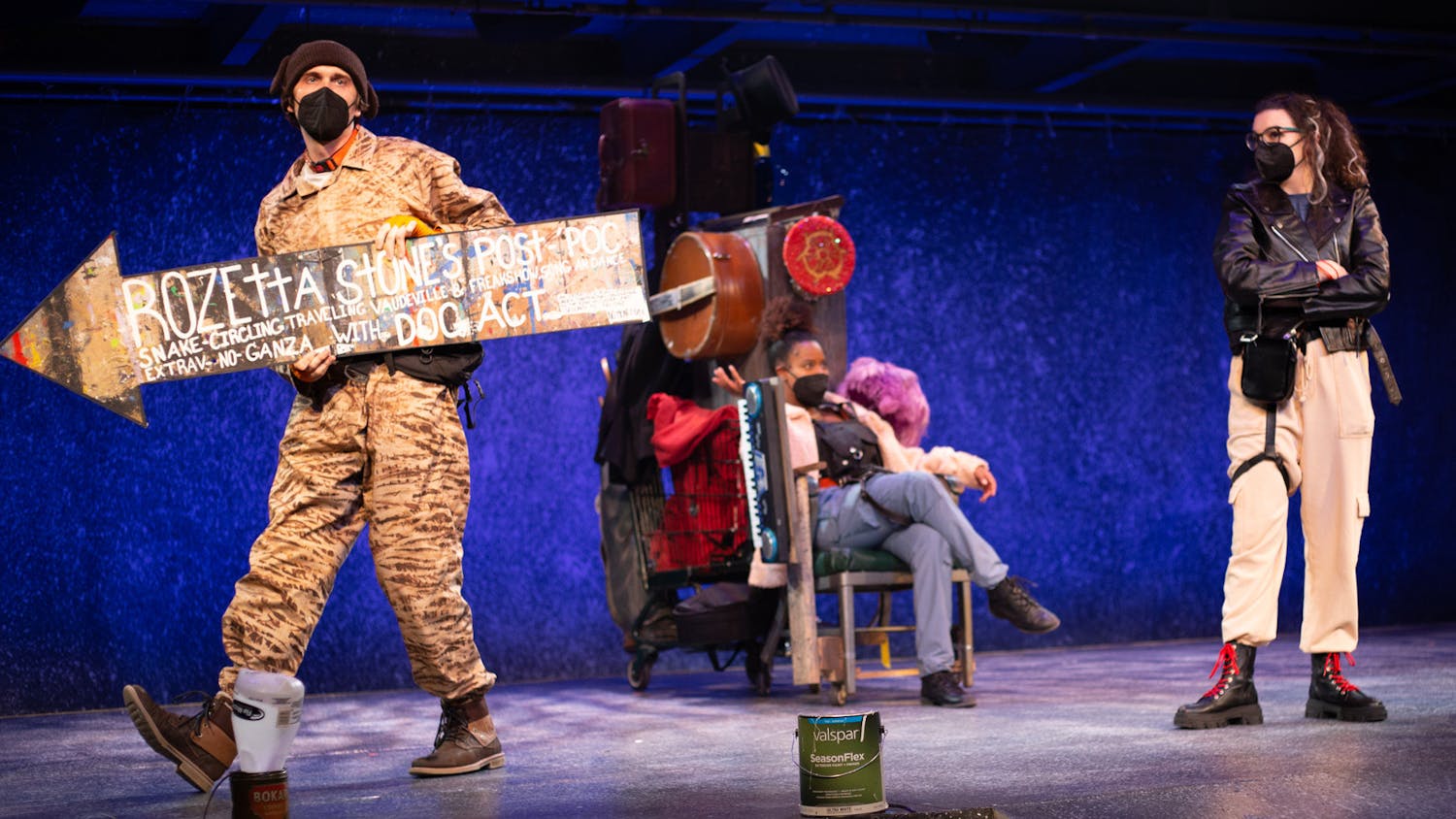There are certain moments in college when you feel an inexplicable gladness, when you realize you are living the “college experience.” Friends feel it when they pay the bill at a restaurant but stay seated for another hour, lost in conversation. Fans feel it on Saturdays in The Swamp, when they look around at 90,000 people united around the same cause, and their adrenaline spikes.
It’s the joy that comes from belonging, and I tend to feel it during lunchtime — not just because I get to eat but because it’s my favorite time to be on campus. It is undoubtedly the busiest time of the day. If you walk through campus around noon, you will probably see Hare Krishnas serving food on the Plaza of the Americas, crowded Chick-fil-As and clusters of friends sharing a meal together. Every Starbucks line will take half an hour to get through, and Turlington Plaza will be a beehive.
You will see thousands of people united by the fact that they are all students at the same school at the same time. This is what excites me. Lunchtime on campus is a reminder to me that I am not a student in isolation, struggling to learn alone, but that thousands of others are here as well. It is a reminder that we are students together and thus are a community.
But if you look closer, you’ll also see benches that were designed to support four holding only one. You’ll see people, rather than conversing with another person, conversing with their phones instead. You’ll see as many eating alone as you do in clusters.
TED Talks have been given on how difficult it is to be an introvert in today’s world. As an introvert, I think that is wrong. It is much harder today to walk up to a stranger and say hello, or to knock on your neighbor’s door. It is incredibly difficult to form new friendships, and much, much easier to stay in one’s room. In a word, it is easier today to be isolated, even in a large, multifarious community such as ours. It is easy to be lonely.
Ironically, if anything was to be improved by our modernity, it was supposed to be our connections. Our devices, for instance, disembody us, freeing us to converse with our siblings in California or Detroit from our bedrooms. Social media allows us to check on friends back home while we wait in line at Starbucks. You no longer need to be physically present with a person to have shared an experience with them. Suffice to say that loneliness was not supposed to linger.
And yet, one of the chief mysteries of modern life is how our growing connection is also growing our isolation. So widespread is this experience that the U.K. appointed a minister of loneliness earlier this year to control the phenomenon.
In light of these things, would it be reasonable to suggest that the connections mediated through our devices are weak, or at least not strong enough for us human beings? I think so. Our loneliness suggests a telos, or inherent purpose. In other words, our social lives were not meant to consist in swipes right, views, likes, texts or tweets.
This implies that our relationships are meant to be a certain way. And I think this is what causes many, including myself, to see our relationships as being planted firmly in thin air. To be disappointed is to have a sense of how things ought to be. How then, in the heart of a radically connected world, can we still feel uninvited to the party?
Because we know there is more to friendship than what our modernity can offer. We know that our devices have stretched our lives too thin and connecting with other human beings is a weighty endeavor. Ask us to demonstrate this on the board or put it in a test tube, and we will seem foolish. But we cannot help but know our lives could be more meaningful.
Loneliness, then, is our curse. But if we consider its origins, its meaning, why we feel it so greatly today, it may be our salvation.
Scott Stinson is a UF English senior. His column appears on Mondays.






